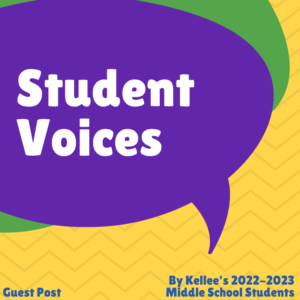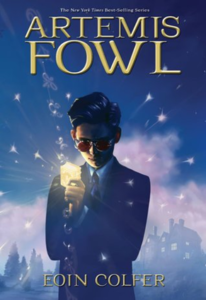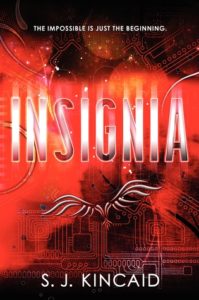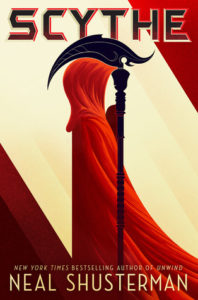“AI: The Flaw in Sci-Fi Books, How AI Can Solve Most Problems Presented in Sci-Fi Books and Why It Isn’t Utilized by Derrick T., 2022-23 8th grader
AI, also known as Artificial Intelligence, is rapidly developing as our grasp of technology expands. Due to the ever increasing complexity of AI, all books that reference technology in the future without an intellectual apocalypse should have a prevalent AI component.
One main point of the Sci-fi genre is to examine potential futuristic outcomes of current situations. Unless our society has a rapid decline in technological progress, any accurate future will have AI. Let’s take a look at sci-fi series that have advanced enough technology that they should have fairly advanced AI but don’t, and how they could use that AI to solve some of their problems. Note that some of these may contain light spoilers.
Hunger Games by Suzanne Collins
While most dystopia series would have an out for including AI, the series Hunger Games would not. Even though the government falls, technology doesn’t, so this series should have AI. In the Hunger Games world the capitol should have AI and that should have a better way to control than to suppress since all examples of oppression have eventually led to rebellion.
It’s also possible that District 3 would have AI since they are a technology developing district. Officially they are more of a production district than a research district, but we aren’t given much insight into the research process. But in the event they had AI they could use it to tactically weaken the Capitol to the point of its collapse.
Artemis Fowl by Eoin Colfer
While this series is typically categorized as fantasy, it does have many sci-fi elements, and since Fairy technology is described as being over 50 years ahead of humanity, meaning it would have AI, I am adding it to this list. The main problem in the first series is that fairies cannot enter Fowl Manor, so they take risky actions to free Holly. An AI could clearly identify the weakness in Artemis’s strategy, like remotely accessed machines, and exploited them, meaning he would be mind wiped and the rest of the series could not have happened.
Insignia by S. J. Kincaid
This series has a more obvious weakness when it comes to AI. The reason for the neural processors is to control space robots faster in the war. If the problem is the speed, why would you not cut humans out of the picture entirely and just have AI control the robots and fight the battles in space?
In the examples above, AI is not used for a variety of reasons. First of all, these series were written before this recent expansion of AI, with the most recent being written in 2012, so these authors didn’t know nearly as much about AI as we do now. Secondly, it is very difficult to write about AI without two major problems: robots and AI generally lack character development, and it is very difficult to create a reason why an AI with access to the sum of human knowledge can’t solve a problem a human can, meaning it is very hard to mix AI and human characters.
It is possible though, so let’s look to an example of a series that does this very well:
Scythe by Neal Shusterman
Scythe is one of my favorite series for it’s use of AI. The Thunderhead (the AI in Scythe) is a perfect way to get out of the problems with AI. The AI itself has character development, and there are very clear reasons why it cannot get involved or act on the problems in the book (the separation of Scythe and State). In addition, the final solution has two reasons why the AI couldn’t have thought of it (I won’t list for spoiler reasons).
In conclusion, AI in both sci-fi literature and real life is continuing to move towards the future, so even as technology makes this post outdated, humanity and our ideas of the future are advancing towards a brighter era.
Thank you so much to Derrick for sharing his analysis of science fiction!





